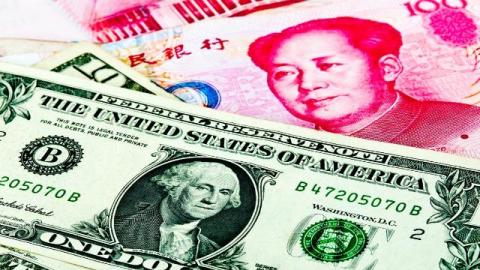Can Economic Interdependence Help to Prevent a U.S.-China War?

Those who hope and/or argue that economic interdependence between the U.S. and China will help to prevent a war between them are often told to recall Norman Angell’s 1910 book, The Great Illusion: A Study of the Relation of Military Power to National Advantage (this link goes to G. P. Putnam’s Sons’s 1911 edition), widely regarded as an exemplar of naïve, shortsighted analysis. While there are important criticisms that one can level against it—Oxford’s Martin Ceadel assembled perhaps the definitive compilation in his 2009 book, Living the Great Illusion: Sir Norman Angell, 1872-1967—it’s unfortunate that the most enduring of them is a misreading of Angell’s thesis.
Angell didn’t argue that “the extraordinary interdependence of the modern financial world” (p. 56) made war among European countries—Britain and Germany, in particular—impossible, but rather, futile—a crucial distinction. Indeed, it was because he believed that growing tensions between them were likely to culminate in war that he appealed so forcefully to statesmen in each country to reverse course:
[S]o long as the production of war material and the training for war are our only preparation for peace, we shall almost certainly prepare not for peace but for war, and every ship that we [the British] add…by increasing the suspicion and distrust that go with the ever-increasing weight of material, does but render a solution of the matter more difficult….At present there is only one policy that holds the field—to go on building ships (p. 334).
He argued that Germany would continue to strengthen its navy lest it be relegated to “a position of manifest inferiority” (p. 345) relative to Britain. As such, Angell envisioned three outcomes:
Far from deeming war impossible, then, Angell seemed resigned to its inevitability. But is it really far-fetched to imagine that interdependence could have prevented World War I? Erik Gartzke and Yonatan Lupu of UC San Diego argue in the new issue of International Security that “[h]ad globalization pervaded Eastern Europe, “or if the rest of Europe had been less locked into events in the east, Europe might have avoided a ‘Great War’” (p. 7). They contend that the prevailing narrative about World War I—economic interdependence among European countries didn’t prevent it from occurring—is misguided, because it treats prewar Europe as a single unit of analysis. Gartzke and Lupu deconstruct it into two clusters—a highly integrated set of countries in the West and a weakly integrated one in the East—leading them to this series of conclusions:
[T]he turn of the century saw a series of intense crises among the interdependent states of Western Europe that nevertheless did not result in open warfare….the fighting in 1914 actually began among the less interdependent powers of Austria-Hungary and Serbia….[while] the highly interdependent European powers were generally able to resolve their crises without resorting to war, the less interdependent powers were typically unable to do so (p. 116).
Those judgments have important implications for the U.S. and China, which, in Hillary Clinton’s judgment, are “thoroughly, inescapably interdependent”:
Professor Gartzke is cautiously optimistic, but hardly Pollyannaish:
[T]he upside potential is there….The problem with the U.S.-China case is that trade may never be able to reach levels where cooperation is the obvious, dominant outcome. If cooperation is not obvious, then whether states cooperate depends on whether their opponents expect them to cooperate and vice versa. To paraphrase [Alexander] Wendt, anarchy is sometimes what states make of it, and sometimes not.
Follow Ali Wyne on Twitter and Facebook.
Photo Credit: Maitree Laipitaksin/Shuttershock.com





